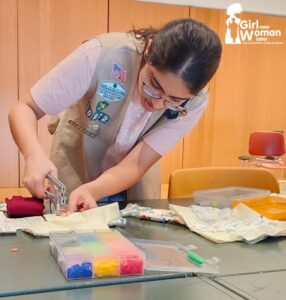Girl Now Woman Later will dedicate itself to ensuring equality in academic spaces. However, for young girls, gendered imbalances not only occur in school, but may also exist in home life.
Gender roles in the household are historically uneven, many women have been tasked with domestic chores. These gender roles also affect younger girls. According to UNICEF, girls spend 40% more time per day on unpaid household chores than boys spend on chores. In Burkina Faso, where Girl Now Woman Later will be operated, girls bear the most disproportionate amount of household responsibilities as compared to the rest of the world. With COVID-19 lockdown mandates, new studies surveying British girls reported that 66% of girls had to spend more time taking care of their family, whereas only 31% of boys reported the same. Thus, the uneven burden of household chores on young girls is as drastic as ever.
Doing household chores is not inherently a negative thing. In fact, learning how to do tasks like washing the dishes, doing the laundry, and cooking are highly beneficial life skills to learn. However, the disproportionate burden of household chores becomes a problem when it affects the girls’ education and other developmental opportunities. Researchers in Sierra Leone found that the hours girls spent after school sweeping, washing clothes, and fetching water contributed to poor academic performances. In Egypt, researchers found that additional household responsibilities led to a lower school attendance rate amongst girls. In Sub-Saharan Africa, the UN found that poor families often choose to send boys to school while keeping girls at home to complete housework. All over the world, the uneven distribution of housework is inhibiting girls from pursuing their education.
Thus, to ensure equality in the classroom, we first have to have equality in the household. One idea that parents can use to promote equal distribution of household chores is by setting the example themselves. A study has found that how parents divided up household chores predicted their children’s attitudes. In particular, the study found that fathers’ participation in these chores exerts an especially strong influence on young adults. Thus, if parents, particularly fathers, can participate equally in household chores, it may promote a more egalitarian division of labor that can carry on through generations. Ultimately, the work of ensuring that girls have access to education must be a collaborative effort between families and teachers.
Phoebe, Lu





